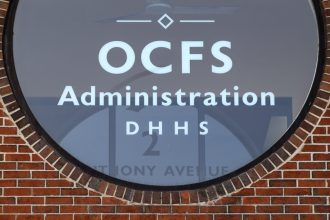A group of Michigan fake electors learned on Tuesday that believing the 2020 election was stolen can still pay off: a state judge dismissed a criminal fraud case against them after finding that they “sincerely believe” there were irregularities in President Trump’s defeat that year.
The ruling brings the last criminal case against the 2020 fake electors to an end.
Judge Kristen D. Simmons found in a hearing that prosecutors had failed to produce “evidence sufficient to prove intent” in bringing fraud charges against 15 people who agreed to submit fake certificates saying that they were Michigan’s electors.
Simmons added at the hearing that “right, wrong, or indifferent,” many in Michigan “sincerely believe, for some reason, that there were some serious irregularities with the election, or with the voting, and that somehow their candidate didn’t receive all the votes that was intended to for them.” Without intent to break the law, Simmons said, there could be no further prosecution on the fraud charges.
The fake electors scheme was a keystone in the 2020 Trump campaign’s attempts to keep Trump in power after losing the election that year to Joe Biden. The idea was largely formulated by attorney Ken Chesebro. Trump campaign officials later assigned him to help manage the implementation of the plan.
The idea was quite simple: as the Trump campaign continued to feign confusion at whether it had lost the 2020 election, its electors would sign “alternate” certificates. That, the thinking went, would allow their electoral votes to be submitted to Congress on January 6 for legislators to approve instead of the real Biden electors.
The plan involved a complete subversion of the will of the voters in each state that participated. It also took the Trump campaign’s extensively debunked claims of voter fraud as grounds for participants to act as if the election result was, in fact, disputed.
Chesebro himself told TPM in a wide-ranging, exclusive interview in 2022 that he had been “identifying possible strategic options” for the campaign, and added that this is “what lawyers do.”
Michigan Attorney General Dana Nessel criticized the judge’s dismissal of the case as “wrong” and called it a “slippery slope for American democracy.”
“I am terrified for the 2026 elections,” she said. “If they can get away with this, what can’t they get away with next?”
Prosecutors in the case had said that the group of fake electors gathered in December 2020 to sign documents falsely stating that they were the “duly elected and qualified electors” for Michigan. The consequences of that were severe: the fake certificates in Michigan and other states allowed Trump to maintain that he retained a path to stay in office through January 6, while giving him and his acolytes yet another way to claim that the result was in real dispute.
That all blew up in a paroxysm of violence on January 6. The storming of the Capitol disrupted the vote count and prompted a wave of accountability directed at the fake electors, attorneys who worked on the plan, the Jan. 6 rioters, and Trump himself. The president has cast it all as yet another example of unfair treatment, and, in office once again, used it as part of his campaign to undermine the state and mold what’s left to his personal benefit.
The same process has played out with his die-hard supporters, which include the Michigan fake electors: Meshawn Maddock, a fake elector and former Michigan GOP Co-Chair, told the AP that “there needs to be major consequences for the people who brought this.”
The entire plan relied on taking MAGA claims of voter fraud at face value: if someone disputed the election, then it was legitimate for others to act as if it was, in fact, in serious dispute, regardless of the details.
Judge Simmons pointed again to the 2020 GOP electors’ belief in the voter fraud claims as a reason to dismiss the prosecution.
“I believe they were executing their constitutional right to seek redress,” she said at one point in the hearing.









